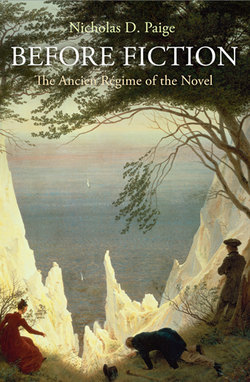Before Fiction

Реклама. ООО «ЛитРес», ИНН: 7719571260.
Оглавление
Nicholas D. Paige. Before Fiction
Отрывок из книги
Before Fiction
NICHOLAS D. PAIGE
.....
These lines come from Tzvetan Todorov’s introduction to Littérature et réalité (1982), a collection of previously published essays bent on showing that realism is in fact deeply mendacious in its claims to transparency and immediacy.33 One of these was Roland Barthes’s 1968 article “L’Effet de réel,” probably the most succinct and resonant articulation of a thesis prominent in much of the critic’s work: realism pretends to be a transparent window onto the world, and this pretension is bad politics and, more fundamentally, bad semiotics. Realism, writes Barthes, is underwritten by a mystified conception of the sign; instead of consisting of an arbitrary relation between a signifier and a signified, the realist sign is yoked directly and “naturally” to a referent. Realist language hides the fact that language is connotation or signification behind a simple denotation or naming—“the pure meeting of an object and its expression.” And the epitome of the realist sign is the insignificant detail; material objects that have no narrative or symbolic function are present in the realist text only to better declare “We are the real.” In other words, the realist sign connotes as much as any other sign, but its connotation is that the text is denotation, that signs have referents, that language is—Barthes puts the suspicious word, the last of his essay, in quotes—a “‘representation.’”34
Barthes’s argument is susceptible to different interpretations, of which some are clearly further from the author’s meaning than others. If the “reality effect” has slipped into common academic parlance, this must be at least partially because the phrase itself doesn’t necessarily upset the commonsensical idea that realism was, well, realistic. According to this view, gratuitous details make texts seem real in the sense that they allow for the reader’s visualization, or make the fictional world thicker, thus facilitating the proverbial suspension of disbelief.35 Barthes’s interest, however, is more semiotic, and his claims lie elsewhere. First, he suggests that the gratuitous detail does indeed still signify—it signifies “realism” as such, and is thus part of the realist code. This is innocuous enough: there cannot be much quibble with the proposition that genres have specific contracts, and that the intrusive presence of description announces realism just as, say, the in medias res expositional conversation announces neoclassical tragedy. Barthes’s main point, however, is something else entirely—that realism was built on an illusion, “the referential illusion.”36 The detail did not content itself with announcing the genre of the text, it furthermore attempted to pass itself off as reality itself; that is, not only did it signify “realism,” it signified that it didn’t signify, that language was pure copying.
.....